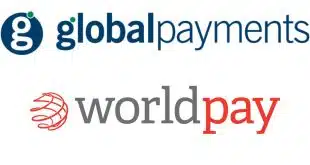As the payments business moves toward faster settlement, verifying payor accounts becomes crucial, yet for non-card payments, “there’s a gap there,” notes Patricia Hewitt, principal at PG Research & Advisory Services LLC, a Savannah, Ga.-based payments consultancy. On Thursday, Checkbook Inc., a San Mateo, Calif.-based startup, announced a step toward solving that issue.
The company, also known as Checkbook.io, said it is working with data-aggregator Plaid Inc. to verify funding accounts for real-time transfers involving a form of digital checks. One of the first users of the integration is Mountain View, Calif.-based Stampli Inc., an accounts-payable software provider. The integration is aimed at more easily linking client accounts for instant payments.
“Our partnership with Plaid is a massive step in the direction of seamless customer experience for Checkbook’s clients,” says PJ Gupta, founder and chief executive of Checkbook and formerly an executive at Visa Inc.. in a statement.

While account verification is common in card transactions, it has loomed large as a problem for real-time push payments, Hewitt says. Checkbook’s integration with Plaid, she notes, represent “the first steps in putting together a solution for non-card payments that happen instantaneously. It’s saying your bank-account information is accurate and you have a source of funds there. That’ extremely important.”
What Checkbook calls “instant account verification” allows companies to verify consumer’s bank-account information “within seconds,” the company says, though only with the consumer’s permission.
Plaid is one of the largest of the companies specializing in connecting payments services with banks to verify account information, having established an estimated 11,000 such links. Visa a year ago reached an agreement with the firm to buy it for $5.3 billion, but last month abandoned the deal in the face of an antitrust suit launched by the U.S. Department of Justice. The DoJ contended Plaid’s banking links could allow Visa to dominate the market for debit transactions, an argument Visa said had no merit.
Meanwhile, Visa’s rival, Mastercard Inc. paid $825 million for Finicity Inc., a data network that competes with Plaid.
Two efforts are under way to build a national real-time payments network. One project, led by The Clearing House Payments Co. Inc., began operating in 2017 and has been adding financial institutions and processors. The other effort is led by the Federal Reserve, which is expected soon to announce the timing for a pilot for FedNow, a real-time payments service it proposed in 2019.





